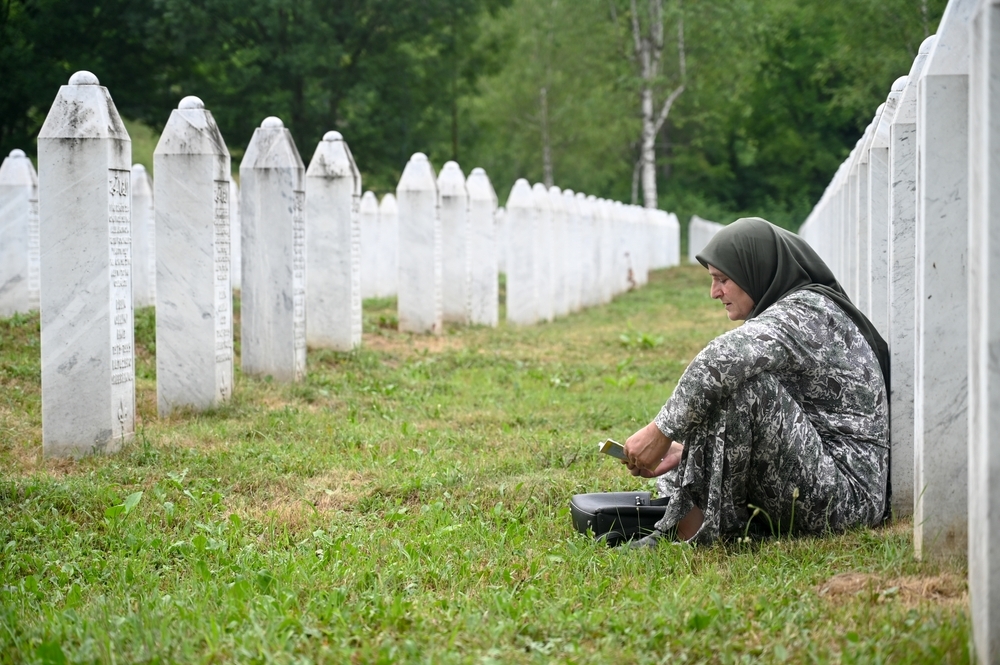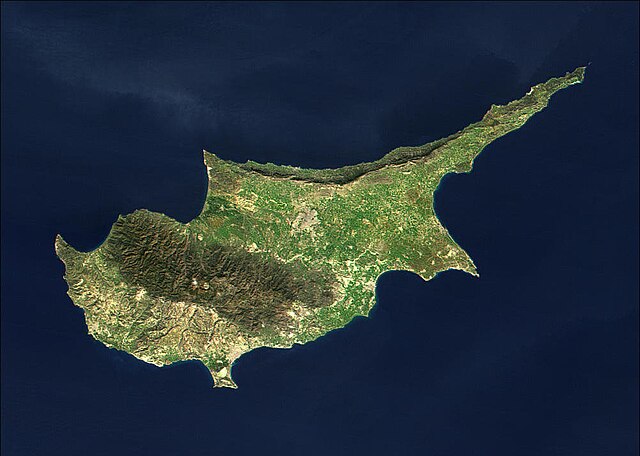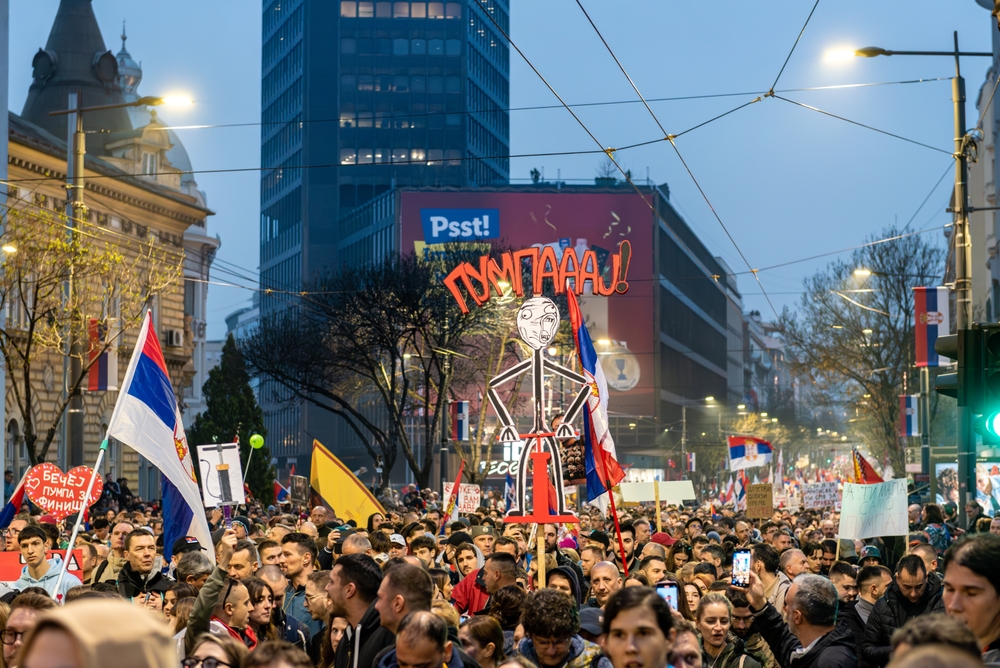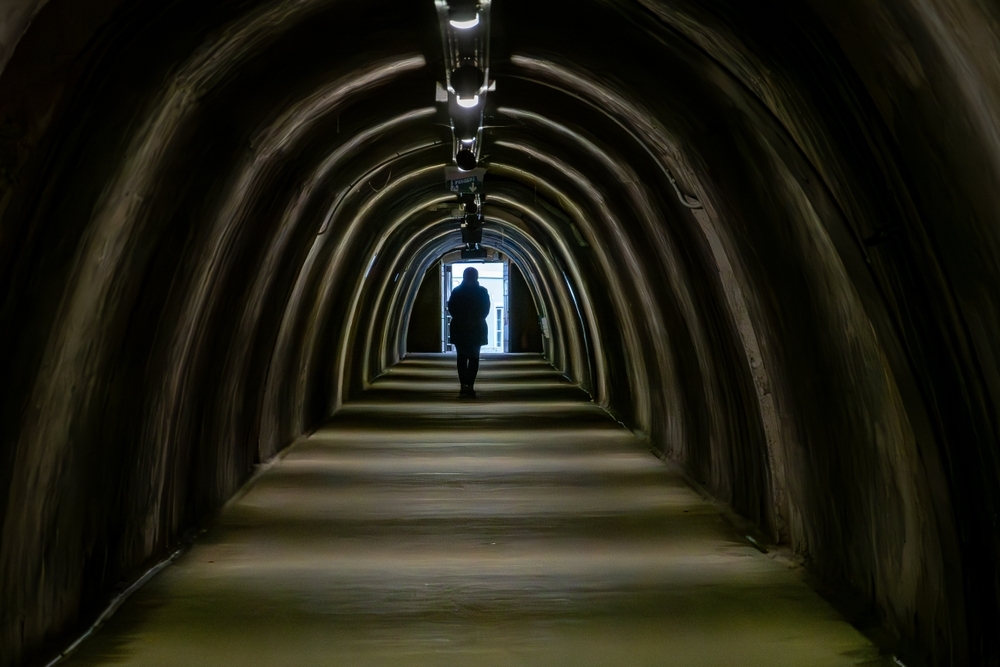Albanesi in Grecia: immigrati e comunità autoctone
Un reportage della nostra corrispondente Tanya Mangalakova. Un viaggio tra Sofia, Salonicco ed Atene, alla scoperta delle minoranze albanesi in Grecia. Il testo è in lingua inglese.
In 1933 on the central Tsimiski Street of the city of Thessaloniki Hasan Pristina, one of the Kosovo leaders, was murdered. Almost certainly, this happened further to an order of the of the Albanian King Ahmed Zogu. Today, the biggest city in Northern Greece is flooded by gastarbeiters from Albania. Not far from the site, where Hasan Prishtina was assassinated, is the bus station, from where buses to Korca, Albania leave. In the office of the "Alvavel" tourist company, which is situated in the vicinity of the gastarbeiters‘ labor bourse, we meet the Albanian from Korca Ilir, who has been working in Greece for 5 years now. Ilir finds his jobs through people he knows, through newspaper announcements; he does furniture moving, painting and other odd hourly paid jobs and lives in Thessaloniki with his wife, which takes care of the house and their two children. He sends money to his relatives in Albania. His two children go to a Greek school and Ilir regrets the fact that there are no Albanian language schools in Greece. His friend Tito, who also comes from Korca, has been gastarbeitering since 1991. Both of them hold "green cards" and contemplate their return to their homeland one day.
Albanians such as Tito and Ilir have migrated to Greece to save themselves from hunger and poverty in their home country. The Greeks residing in the Southern part of Albania and known in Greece as Northern Ipeiros have been entitled to a number of privileges. Greece is currently flooded with gastarbeiters that can be found everywhere. Titos Jochalas, Director of the Center for Southeast Europe studies in Athens, comments, "Albanians are to be found in such large numbers here, so that if one day they decide to leave, Albania will be brought to her knees. The Albanian economic migrants in Greece sustain the entire Albanian economy".
The precise number of the economic migrants in Greece in not known but experts claim that they are around 1 million people. Two campaigns to legalize the illegal stay of migrants have been carried until now and gastarbeiters. that have entered Greece before August last year have been granted "green card"s and an opportunity to work legally. This is however accompanied two times lower wages, offered by the Greek employers. The biggest in the number of economic migrants coming from Albania and predominantly from Southern Albania. Their number is estimated at 700 000- 800 000 people. One finds it paradoxically that the Greek economy offers employment to such a huge number of migrants, despite the fact that many of them are employed in the shadow economy and pay no social or medical insurance. Economists in Athens confess that the rise of profit in agriculture can be attributed to the gastarbeiters.
Charalambos Tsardanidis, Director of the Institute of International Economic Relations in Athens, forecasts that Albanian migrants will radically alter Greek society, "Many believe that in contrast with the first generation, which was very poor, the second generation Albanian migrants will claim union, educational and political rights. The Greek society is evolving in the direction of a multicultural society and this is inevitable, no matter how much we like or dislike it".
The experts’ forecast is that the second generation of Albanian gastarbeiters. will ask not only for union rights but also for the establishment of Albanian language schools in Greece. Prof. Basil Kondis, President of the Institute for Balkan Studies in Thessaloniki, is skeptical that Greece will allow the opening of Albanian schools, "Albanian economic migrants in Greece are entitled to cultural rights. We did not invite them to Greece, they are economic migrants. The opening up of Albanian schools in Greece will be very difficult. The current population of Albania does not exceed 1,5 ml. There are 800 000 Albanians in Greece and that much in Italy, Germany, the USA; practically each Albanian is willing to leave for abroad. Presently, the entire northern part of Greece is empty. Albania has no agriculture and even cucumbers are being imported from Greece. They would have died, had not it been for our support".
Greeks admit that Albanian gastarbeiters are quick to adapt to the country specifics and pick up Greek. The children of the migrants are enrolled in Greek schools. Surveys in the downtown area of Athens indicate that 70-80% of the pupils attending schools are from Albanian ethnic origin. When one mentions Albanian migrants, Greeks tell the story of the heated debates that surrounded a pupil from Albanian origin, who scored exceptionally in school and had to carry the national flag on a manifestation of Greece’s National Holiday. Many Greeks oppose the fact that a foreigner pupil carried their national flag. Nerves are strained additionally with the fact that due to forthcoming 2004 Olympiad, Greece is to erect a mosque in Athens. The Greek Orthodox Church, which exercises tremendous influence over the public opinion, opposes this.
Bekir Meta, a researcher of the Greek-Albanian relations with the Institute of History to the Albanian Academy of Science in Tirana, warns against the exercise of power to change the names and the religion of the Albanian migrants in Greece, "Albanians in Greece are faced with problems, related to the low level of political emancipation of the Greek society. There is albanophobia and probably unofficial pressure that Albanians change their names and religion". Professor Meta is skeptical about the opportunities to open up Albanian language schools for the Albanian migrants in Greece, "Albanian migrants in Greece can not have their own schools. This is further aggravated by the incapability of the Albanian State to help them, the inability for perform collective action and the lack of interest on part of the Greek state. Some of the migrants will return to Albania to build agricultural farms and homes after they have saved some money. Another part of the migrants will be assimilated and will stay forever in the Greek State. I do not view this as a tremendous loss, because this people will serve as a bridge for cooperation, as is the example with the Albanians in the USA. What is most important is that this is a peaceful and organic process".
There are also indigenous Albanians in Greece, i.e. Arvanits and Chams, deemed by many historians in Albania to be autochthonous and considered by Greek historian to be albanophones and not belonging to a separate ethnicity ("The Arvanits in Greece are body and soul of Greece", K.V. Karaspatis).
"There are no autochthonous Albanians with an Albanian self-conscious and from an Albanian ethnic origin in Greece. But what importance does this have, when in 20-30 years the Albanians that have settled in Greece might have reached 1 million and more and despite the fact that they are not recognized as a minority, they would represent 10% of the population of Greece", comments Mr. Tsardanidis.
The Arvanits
The Greek society is very sensitive to the issue of minorities. The only officially recognized minority in Greece is the Muslim minority, to which the Turks and the Pomaks are attributed. For several centuries now in Greece there have been indigenous Albanians, that call themselves Arvanits. Prof. Basil Kondis, President of the Institute for Balkans Studies in Thessaloniki, claims that here are over 25 Greek Prime Ministers in Greek history, who belonged to the Arvanits and one of them is Theodoros Pangalos. "But if anyone tells Mr. Pangalos, that he is an Arvanit, he faces grim consequences", warns Mr. Kondis. Titos Jochalas has written two monographs on the Arvanits. He asserts that they come to Greece in the 14th century with Dushan and Urosh; the Venicians placed them in many sites in the region of Evia, Peloponnisos and when Venice is defeated by the Ottoman Turks, they are moved to Southern Greece, where until presently in Sicily there are villages of speakers of an Arvanit dialect, close to the dialects spoken in Greece.
In Greek the word Arvanit has the meaning of an ethnic origin Albanian, who speaks Albanian and also means a thief. In the past the Northern wind in the Ipeiros was called Arvanit, no solely due to the fact that it comes from the North, where Albania is situated but also because it is ‘powerful and fierce similar to an Albanian’ (excerpts from Sarandos Kargatos’ book "Albanians. Arvanits. Old Greeks." in the chapter ‘Arvanits in Attiki and Beotia’, published by the Sideris Publishing House.)
The Arvanits in the village of Kalivia, Attiki Region
There are no official data about the number of Arvanits in contemporary Greece. They have gradually been assimilated and today identify themselves as Greeks. Only the elderly speak an old Arvanit Albanian dialect. Not far from Athens, in the region of Attiki there are four villages (Spata, Markopoulo, Koropi and Kalivia), where Arvanits live. The "Euromosaic" linguistic survey (1995) indicates that Arvanit is spoken in the regions of Attiki, Evia, the Cyclades, the Corinthos, the Pireas, Beotia, in the region of Ipeiros, in Xanthi, Serres and Thessaloniki. Arvanit is not being taught in Greek schools.
In the village of Kalivia the old Arvanit homes stand out with their tall surrounding walls, blocking the view to the inside. The 38-year old owner of the "Maruzik Kurkas" Tavern is from Arvanit origin. She does not nurture feelings of sympathy towards Albanian migrants, who putatively were changing their names and their religion in the pursuit of profit, "Most Albanians adopt Christianity, so that they have someone of theirs here. They make use of the situation…They filled up Greece. Now, no one wants to listen to this language the Albanian, because they are not a good people. They are secretive; we don’t know what to expect from them. There are good people among them but most of them are not good. They are not the same people such as the Arvanit one". She claims that only the elderly people in the village speak the Arvanit dialect.
We are asking for an espresso in the cafeteria of the village of Kalivia, placed in the vicinity of the Orthodox Church (the Arvanits are Orthodox). The owner retorts that the coffee is ‘as strong as the Greeks’ and offers us a coffer, which we in Bulgaria would name ‘Turkish coffee’. We run into two local elderly gentlemen, who link their identity with the time of Ali Pasha, the sovereign of the region of Ipeiros. "We are all Greeks", says the one and the others elderly replies with indignation, "What Greeks. We are all Arvanits". He claims that in the entire region of Attiki all the villages are Arvanit, except for the village of Lavrio. Both elderly show an extremely negative attitude towards the Albanian migrant, "The Albanians that arrived now are not a good people…They steel, kill, beat". They tell that there are Albanian migrants in the village, who help the households but they made so much trouble, that no one wants them any more. It is clear that the Arvanits have been assimilated by the Greek State and fear that the negative attitude towards the Albanian economic migrants will reflected on them. The Arvanit dialect is close to the Albanian language spoken by the gastarbeiters but there are word differences.
The Chams Paradox
Part of the Albanian elite deems that there are many Chams residing in Greece, while Greeks are unequivocal in their assertion "There are no Chams in Greece today!" Chameria is a geographical region, which the Greeks call Ipeiros. Within its borders is Ioannina, where during the Ottoman Empire stood the castle of the sovereign of Ipeiros Ali Pasha and the region, West of the Pindus Mountain – Igoumenitsa, Parga and Preveza. Some researchers relate the origin of the ethnoname to the Turkish work cham (pine), while others make a link to the old Ilirian tribe of Samis.
For the first time a settlement of Albanians from Albania in Greece is described in Ludvig Savator’s book published in 1704 in Prague and the region of Thesprotia was described. Titos Jochalas clarified that what Albanians call Chameria means Thesprotia to the Greeks. Greek historian assert that Chams originated from Thesprotia in the time of Ali Pasha.
Prof. Basil Kondis has the following explanation about the Chams paradox, "There are many Albanian Web sites that talk about a Cham genocide. There are publications claiming that there are 500 000 Chams in Greece. This is not true. How much are the Chams? If we take for granted that in 1945 they have outnumbered 20 000 with the current Albanian birth rate they should not be more than 70-80 000. The anti-Greek propaganda with relation to the Chams is being lead not from the territory of Albania but by the Albanian diaspora in Germany and Switzerland".
Prof. Kondis believes that 99% of the Chams are Muslim and that in the 1920s they outnumbered 18-20 000 people. Greek historians believe that the Chams have left Albania after the WWII and the only problem Greece can have with the Chams is the issues related to the estates they left in Greece after 1946.
When in 1926-1928 Greek refugees from Asia Minor arrived to Greece, land was in short supply and Venizelos carried out a land reform and expropriates land. Each owner is left with 300 decar of land. At that time, the Chams possess large chunks of land in Thesprotia and claim higher compensations. In 1928 they appeal to the Society of Nations with two claims, i.e. to be compensated for the expropriated land in a similar way such as the French, Italians and British and to be recognized as a minority. Prof. Kondis states, "In 1930 the Albanian king Ahmed Zogu offers Greece an exchange of population – the Chams in Greece in return for the Greeks in Albania. The exchange does not take place and the Albanian history is numb about this fact." In his opinion, the Chams issue originates when in 1939 Italy conquers Albania. At that time the Chams from Thesprotia launch a series of petitions to Italy with the request to include Chameria to the territory of Albania. Albanian battalions consisting of Chams fight on the Italian side. These are the battalions to set Igoumenitsa to fire.
Did the Chams leave Greece on their own will or were they evicted?
Greek historians believe that 1941-1943 during the time of Greece’s occupation, the Chams have committed various crimes and were afraid to remain in Greece after the Germans retreated. During Greece’s occupation the Chams many violations over civil Greeks have been ascribed to the Chams. The most notorious massacre is the one from September 1943, when after the capitulation of Italy, the Chams enter Paramithia and Thesprotia and assassinate around 50 leaders. British liaison officers refer to the Chams as "turkoalbanians". Around 1700 Chams have been convicted for collaboration and their property was confiscated by the Greek State. Prof. Kondis reminds that in the beginning of 1945 one of the Zervas’ captains (the leader of the nationalists in the Greek Resistance) killed a group of 70-80 Chams in a valley on their way to Albania.
Greek observers believe that many of them have illegally entered Greece after the fall of Communism in Albania claiming to be North Ipeiros (the official name in Greece of the Greeks in Northern Albania). They possess North Ipeiros identity documents and use Old Greek names.
In 1998 the Tirana-based Albanian Academy of Science Platform recommends educational and cultural rights to the Albanians in the Greek regions of Chameria, Kastoria and Florina and launching initiatives on part of Tirana to solve the issues with the estates of the Albanians evicted from Chameria in 1945. Prof. Kondis, himself from origin of refugees from the region of Korca, considers the vision of this platform to be purely theoretical. The Chams issues was brought to the political agenda in Albania in 1992 when Albanian President Sali Berisha insisted in a speech that the Chams are given back their estates in Greece. The government of Fatos Nano also raised only the issue about the compensation related to the lost estates of the Chams. Greece does not oppose to compensate the Chams but at the same time poses the issue about the Greek estates in Albania. Prof. Kondis predicts that at least 30 years will pass until this issue finds its legal solution.
Tag:











